The professional boxing industry employs thousands of people. Professional sport is a classic type of medium-sized business. This business belongs to the entertainment industry. In many developed countries, professional boxing is a business where millions of dollars are flowing. Cash flows can even help to support the economy of the country where one or another bout takes place. But a boxer is one of the many professions that are associated with this business.
Boxer
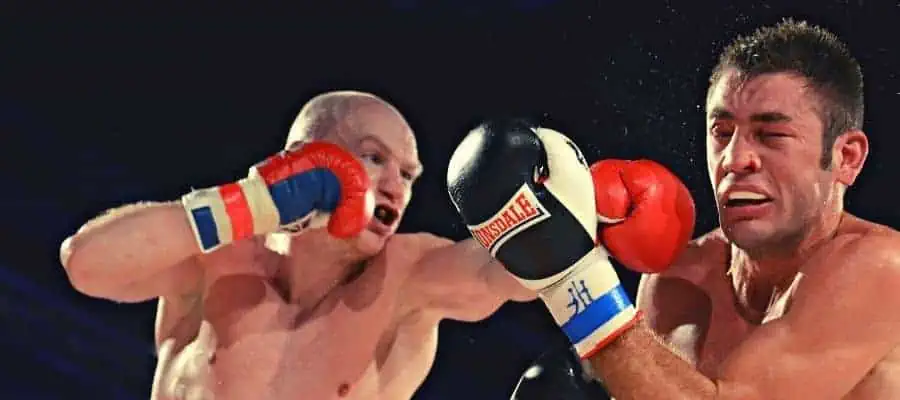
The most obvious profession in professional boxing. It is also the most dangerous and difficult. It’s a classic profession where the salaries of the best and the worst fighters differ by a million times. The length of a boxer’s career is short. An athlete has 10-15 years to earn enough money and get out of the game.
Preferably without serious injuries. Moreover, funds must be earned with a plan for the future. After the age of 35, many boxers are unlikely to realize decent royalties. The money needs to be invested in the future. For example, an average boxer from the top 300 ranking in any division can earn from $5k to $60k/ $70k for 1 fight.
At the same time, Floyd Mayweather is capable of realizing more than $50 million in a single fight. The difference is several thousand times. The boxer profession also includes sparring partners. These are the journeyman who makes a living by participating in the training of top fighters. Oddly enough, the most popular profession in boxing is not the most profitable.
Promoter

A promoter is a man who organizes fights with the help of professional fighters. The promoter’s responsibilities include: renting the place of the fight, advertising campaign, working with investors, the schedule of the fights, and organizing comfortable conditions for people involved in the process.
These people are spectators, judges, teams of athletes, ring girls, organization reps, and medical committees. The promoter takes all financial risks associated with the organization of the event. The organizer of the fight, like any businessman, is trying to get the largest amount of profits.
In this regard, his interests are not the same as those of the boxer. A promoter tends to sign a contract with a popular fighter. It is because a media personality attracts an audience. Also, it increases viewership on TV and streaming. Where there’s a viewership, there’s money.
The organizer of the fight tries to cut the cost of the event to get the largest profit. He is also interested in reducing the fee he pays to the boxer. On his shoulders rests the responsibility for the details of the organizational process.
It also includes paying the fees to the main boxing organizations. Large promotional companies are capable of generating up to $1.5-2 billion profit per year. But this is the top of the iceberg. Average promoters are unlikely to have a profit greater than that of a grocery store owner.
Manager

A boxing manager is essentially an intermediary in negotiations between the boxer and the promoter. This kind of boxer’s agent is required to have law knowledge. He must also represent the interests of his client in a way like a lawyer. The profession of a boxing manager has become the most actual since 2000 when the so-called “Mohammed Ali Law” was passed.
The Mohammed Ali law was designed to limit the legal contact between the boxer and the promoter. The purpose: is to protect the boxer from scams by the organizers of the fight. With the advent of the law came the need for intermediaries. Until the year 2000, the function of a boxing manager was done by coaches or athletes’ fathers.
There are very few worthy professionals in this field. A good example of a real manager is James Prince. He doesn’t do anything outstanding. But Prince does his job well and has a great reputation. If you are among the best people in the world in a specific profession, you will for sure monetize your skills.
The example of James Prince is proof of that. The manager receives a percentage of the boxer’s fee (usually 10% to 30%). It is not difficult to count a manager’s income if you know his mentee’s salary.
Cutman

The cutman is the person responsible for treating a fighter’s injuries between rounds. His responsibility includes: fixing a bleeding nose, stopping blood from a head cut, and removing swelling in the eye area. The cutman must do his job fast as possible and with the smallest of medical supplies. He is allowed to use the following tools and substances:
- Vaseline (to apply to open wounds and stop bleeding)
- Cotton swabs
- An ice pack (applied to the boxer’s injured area to prevent swelling)
- Gauze bandages
- Medical gloves
- Adrenaline hydrochloride (a fluid used to reduce blood flow)
- Various coagulants in powder form (applied to the injured area to stop the blood).
- Enswell (small piece of metal with a handle to artificially cool and remove the bruise by smoothing the injured area)
Using the above medical equipment the cutman has to treat a boxer’s injury in 1 minute. For his work, the cutman gets a percentage of the athlete’s salary (as a rule, 5-7%). As in any activity, there are truly skilled craftsmen among cutmen. The most famous cutmen are:
- Chuck Bodak (who worked with Mohammed Ali, Rocky Marciano, Oscar De La Hoya, Evander Holyfield, Thomas Hearns, and Julio Cesar Chavez Sr.)
- Jacob “Stitch” Duran (worked with many MMA fighters, as well as representatives of professional boxing).
- Rafael Garcia (Floyd Mayweather Jr.’s cutman)
- Al Gavin (worked as a cutman for Lennox Lewis and Micky Ward).
The role of the cutman is very important. He does his job inconspicuously, but his work is necessary. An athlete cannot continue to fight if his face is turned into a bloody mask.
Coach

A professional trainer should combine the functions of a psychologist, a mentor, a cutman, a cornerman, and a friend of his mentee. To determine the best boxing coach it is necessary to identify the following criteria for evaluation:
- The number of fighters who achieved the world title
- Successful work with fighters of different weight categories
- The ability to take responsibility for the defeat of a fighter
- Productive work in the long term
The most important of the above-mentioned criteria is the first one. The number of world champions is the most important criterion. This is the main indicator to find the best boxing coach. But, there are nuances. Some coaches have worked only with top fighters after building a good reputation for themselves.
To become a highly sought-after coach, you have to walk a long way. The more world champions a coach has, the more money he gets. As a rule, a mentor has a percentage of his mentee’s salary (about 10-15%). Some professionals use the rental of their club as an extra income. A bad coach will not have customers and income, and qualified will never have issues with staffing.
Matchmaker

This is the person responsible for organizing the fight. The matchmaker works in the promoter’s team and sometimes is the promoter. He is responsible for the selection of boxers for a particular card. The matchmaker is the role, at different times was considered the most difficult or thankless in boxing.
Organized a spectacular fight – all honors go to the promoter and the fighters. If you made a mistake in the choice of boxers in the pairings, your reputation will be damaged. For most fans, you will remain some unknown person.
But those who have more knowledge in boxing and sports insiders will forever associate your name with a boring show. The matchmaker’s salary depends on his skills. The monthly salary can range from $1k to $100k.
Cornerman
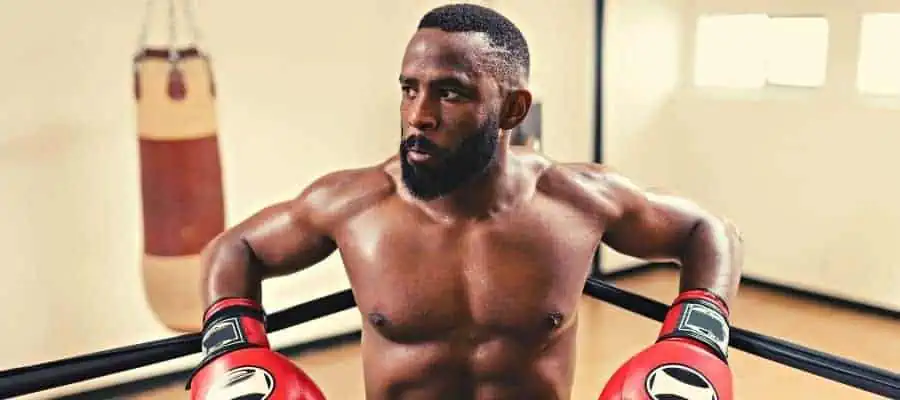
The term “cornerman” refers to any person in a boxer’s corner. It can be a coach, trainer assistant, or a cutman. Most often, cornermen are associated with the trainer assistant. This is the person who assists the coach (gives him a bucket of water, a mouth guard, a towel, and other things).
As a rule, the second assistant receives the least from the team. He can get up to $5k per fight. Sometimes the second assistant gets the necessary experience and becomes a head coach. For example, Marvin Somodio. For several years, this boxer worked as an assistant for Freddie Roach. Later on, Marvin established himself as an independent expert. His salary increased considerably.
Ring Girl

This profession for girls was born back in the days when boxing fights were organized in bars. At that time, after the next round, when boxers needed to rest, many viewers were bored. And after that, respectively, most of them were leaving.
To prevent the viewers from getting bored they came up with an idea to send a village girl dancer to entertain the viewers. Later, when boxing was taken out of bars to the ring, it was invented to show pretty girls with the next round number.
Thus the viewer was informed about the next round and enjoyed a beautiful ring girl. If the lady has a sexy figure and has experience in modeling, she can be cast as a ring girl. Girls’ salaries depend on their belonging to a particular promotional company.
The amount of money can be up to $2k per night of boxing. Like boxers, work in the ring girl profession is time-limited. A 20-year-old girl will be in a better position than her 40-year-old competitor.
Referee
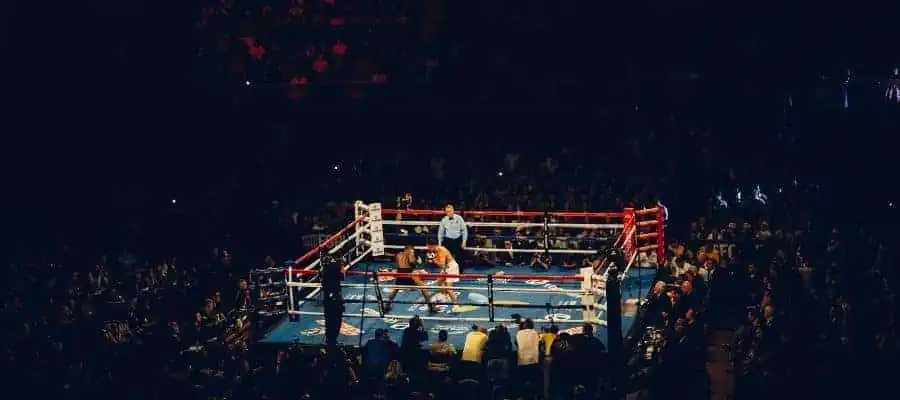
Competent referees have been in demand at all times. Referees are not much different from boxers. The more fights a referee has judged, the higher his reputation. Referee salaries can be up to 15000 dollars per fight. People without a criminal background who had passed the necessary tests were allowed to be a referee. From the referee required:
- Perfect knowledge of the boxing rules
- The ability to interfere in time and stop the fight
- To control the situation in the ring and outside it
- To collect notes from the other three judges after each round
- To say the commands loudly
- To speak several languages for to be able to instruct the fighters of different nationalities.
The main quality of a successful referee in the ring is his discreetness. The referee’s actions should be timely and not interfere with the spectators’ watching the fight. Referees, like fighters, improve their qualifications and gain the necessary experience.
Also, they try to get good references from AIBA (International Boxing Association) and add to the list of fights they judge. A high-level boxer generates more interest from the viewers and earns solid royalties. So do the referees.
Employees Of Sanctioning Bodies
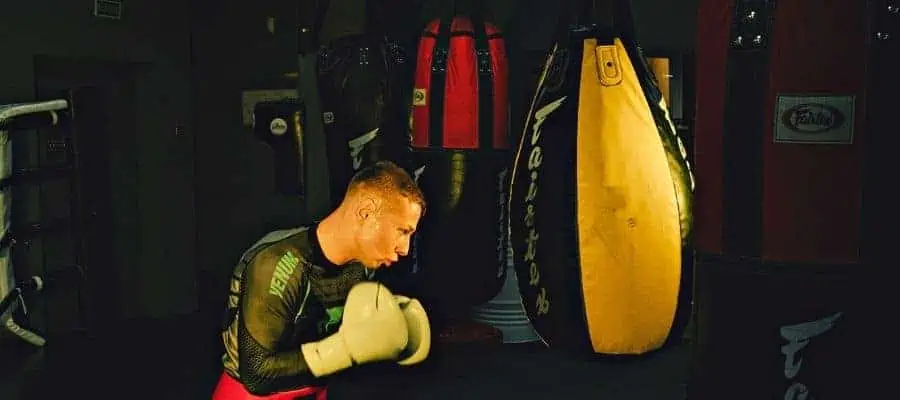
Employees of the major sanctioning bodies (WBC, WBA, WBO, IBF) earn solid salaries. Qualified professionals are a priority, as everywhere else. These specialists are lawyers, accountants, and other similar professions. Of course, there is also a lot of competition.
This is a big disadvantage because it is difficult to pass an interview and get such a job. As a rule, the team of boxing specialists in those organizations is well-formed and does not change for many years.
Employees Of The Athletic Commission
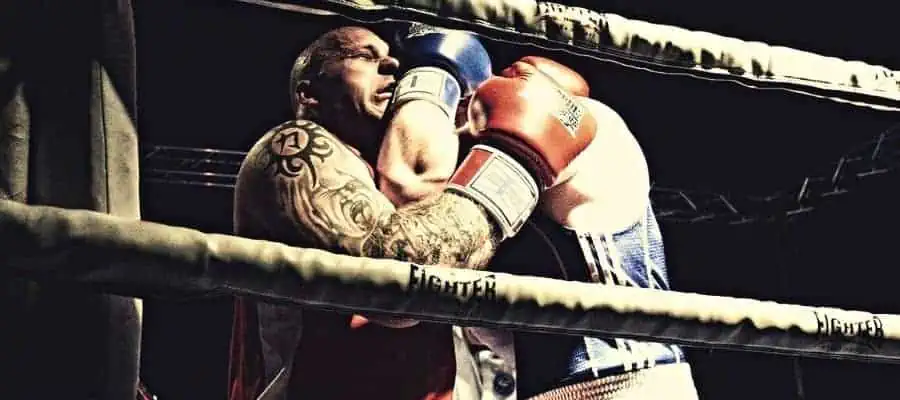
Qualified people may also work in this area. For example, physicians and members of the Judging Commission. A qualified physician has the opportunity to become an employee of the Athletic Commission.
The salaries in this area are more than decent. Unfortunately, there is a problem similar to that of an employee in a sanctioning body. It is also difficult to get a position in this area and there is a very high level of competition.
Ring Announcer
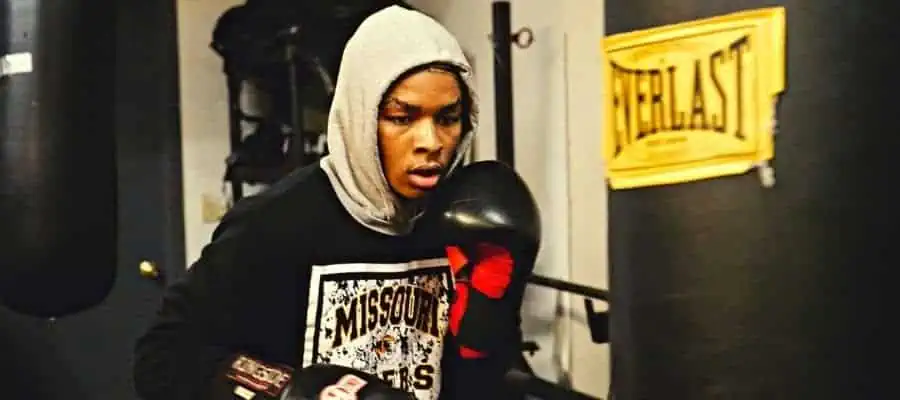
A very rare and specific profession. Michael Buffer and Jimmy Lennon are the famous ring announcers. They can realize royalties of several millions of dollars for 1 night of boxing. But they are exceptions. In the 21st century, ring announcers are important figures on boxing shows. Professional boxing is a business.
Organizers need to attract as many viewers as possible to make a profit. In today’s boxing, loud-voiced ring announcers function as the same heralds who drove spectators to the fights during Sunday fairs in the 19th century. The technology of this profession has changed, but the essence has not.
Reporter

People who cover events in the world of professional boxing. This includes YouTube channels, websites, and commentators. All these people are reporters and publicists in the field of professional boxing. Their earnings depend on the promotion of their resource (site, channel).
Also, it depends on the competence of this reporter and the country of broadcasting. The amount of money per month can range from 100 to 50k dollars. Some of the famous sports reporters in the boxing world are such people as Max Kellerman and Jim Lampley.
Landlords

This profession is of course indirectly related to boxing. Owners of big sports clubs or large arenas can generate solid amounts of money. Promoters rent venues to sell boxing evenings. The owner of the club can generate a solid income. But to do this, you need to invest in the purchase and decoration of a particular building.
TV And Streaming Platforms Employees
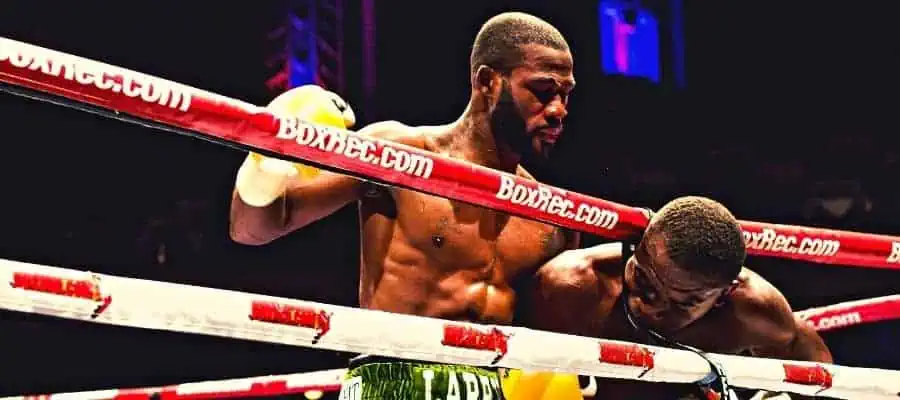
Television is an area that generates a lot of money. Broadcasting boxing nights generate a solid income. Positions at DAZN or ESPN are paid very decently. The problem here, as with other minor areas of boxing, is that it’s hard to get a job.
Security Guard
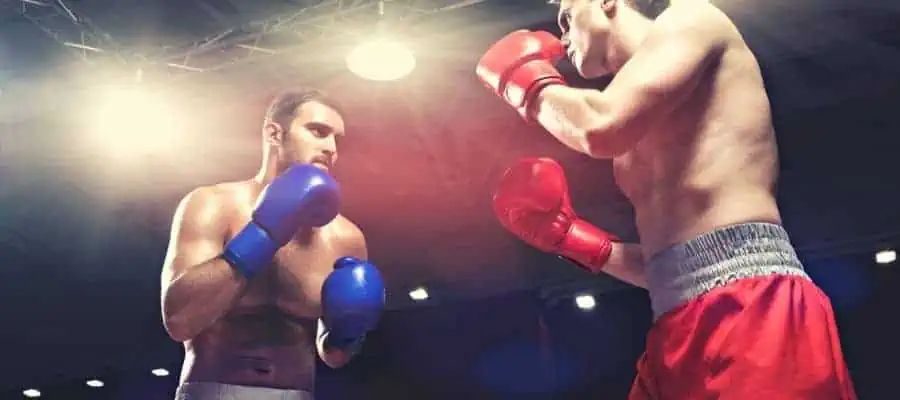
The implementation of security is part of the promoter’s responsibility. Each organizer of big boxing evenings has his team of security guards. If a person has a license and passes needed tests, he can get a full-time job. The guard’s monthly salary ranges from $200 to $50k.
Lawyer

This is a person from the promoter’s team. The responsibilities of the lawyer are mostly paperwork. In addition to this, the lawyer also represents the promoter in court. There is usually a whole team of lawyers in such organizations. Monthly salaries can be up to $250k. In the 80s and 90s of the 20th century, Don King lawyers realized up to $200k per month of work.
Equipment Manufacturing

Sports equipment brand stores are in high demand by professional boxers. Equipment tends to wear out. Boxing equipment will always be in trend. The problem is the high competition among the various brands. The income of sports stores is not much different from their retail counterparts.
PR Manager

The PR manager is a modern profession. It is sometimes partly intertwined with the work of a classical manager. Some famous boxers use the PR manager’s help for media promotion. They, in turn, develop the boxer’s popularity on social networks, create a certain image in the masses, as well as carry out advertising.
Sports Nutritionist
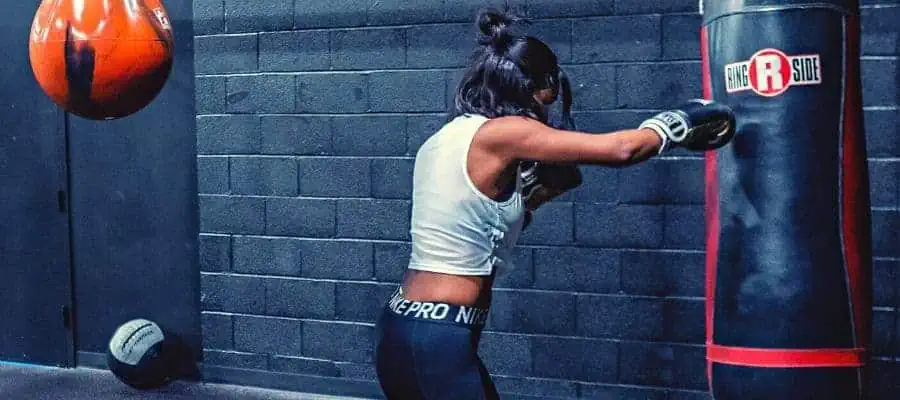
Every boxer has faced the problem of the weight cut. Some athletes have difficulties during the preparation phase of the fight. A qualified sports nutritionist can help the boxer with this problem. Massage, yoga, and some medical specialties can also be included in this profession. Earnings in these professions depend on qualifications, degree of employment, and building a personal name in this business.
Recent Posts
What is Manachai's Fighting Style? Unveiling Muay Thai Mastery
Manachai, a celebrated figure in the Muay Thai world, has captivated audiences with his exemplary martial prowess. Hailing from the heartlands of Thailand, his name is synonymous with the art of...
What Was Chamuekpet Hapalang's Fighting Style? Unveiling Techniques
Chamuekpet Hapalang was a renowned figure in the world of Muay Thai (record 200-48-2), embodying a fusion of Muay Bouk and Muay Khao styles. Originating from Thailand, the art of Muay Thai is known...
